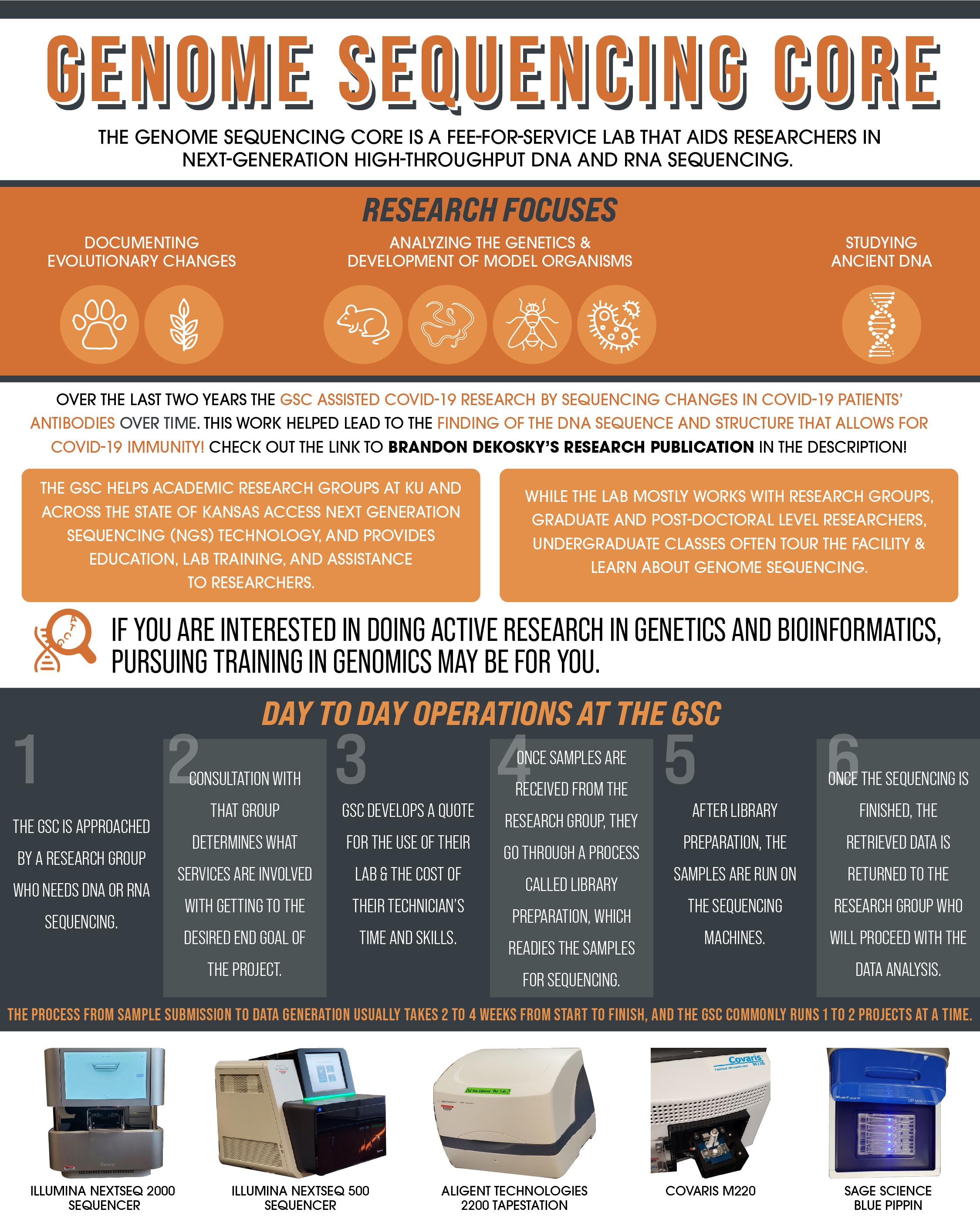Haworth Highlight: Genome Sequencing Core

Genome Sequencing Core
The Genome Sequencing Core is a fee-for-service lab that aids researchers in next-generation high-throughput DNA and RNA sequencing. Research focuses on analyzing the genetics and development of model organisms like mice, nematodes, fruit flies & bacteria, documenting evolutionary changes in plants and animals, & in the study of ancient DNA.
Over the last two years the GSC assisted COVID-19 research by sequencing changes in COVID-19 patients’ antibodies over time. This work helped lead to the finding of the DNA sequence and structure that allows for COVID-19 Immunity! Check out the link to Brandon DeKosky’s research publication for more information.
Link to publication: DOI: 10.1016/j.celrep.2021.109771 (Covid-19 Research completed by Brandon DeKosky lab group)
The GSC helps academic research groups at KU and across the state of Kansas access Next Generation Sequencing (NGS) technology, and provides education, lab training, and assistance to researchers.
While the lab mostly works with research groups, graduate and post-doctoral level researchers, undergraduate classes often tour the facility & learn about genome sequencing.
If you are interested in doing active research in genetics and bioinformatics, pursuing training in genomics may be for you.
Jennifer Hackett, M.S., core director of the GSC describes day-to-day operations
- The GSC is approached by a research group who needs DNA or RNA sequencing.
- Consultation with that group determines what services are involved with getting to the desired end goal of the project.
- GSC develops a quote for the use of their lab & the cost of their technician’s time and skills.
- Once samples are received from the research group, they go through a process called library preparation, which readies the samples for sequencing.
- After library preparation, the samples are run on the sequencing machines.
- Once the sequencing is finished, the retrieved data is returned to the research group who will proceed with the data analysis.
The process from sample submission to data generation usually takes 2 to 4 weeks from start to finish, and the GSC commonly runs 1 to 2 projects at a time.